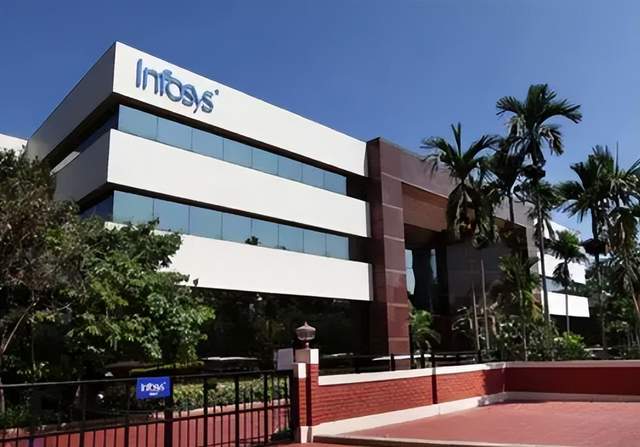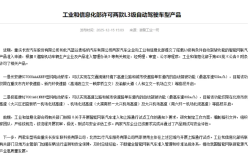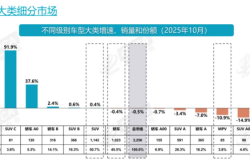India's Software Outsourcing Industry Confronts AI Disruption
![]() 08/21 2025
08/21 2025
![]() 579
579

Forty years ago, in a modest Bangalore office, Infosys' founder leveraged a mere $250 in start-up capital to create millions of middle-class jobs, cementing Indian engineers as a cornerstone in global IT outsourcing.
During its heyday, it was reported that for every 1% increase in US GDP, India's IT exports surged by 4.1%, generating $200 million in exports across the industry.
However, today, this $283 billion industry is undergoing unprecedented transformations. Tata Consultancy Services (TCS) abruptly announced layoffs of 12,000 employees, followed by giants like Infosys and Wipro, transforming once-enviable white-collar professionals into the unemployed overnight.

India's vaunted IT outsourcing industry appears to be being pushed to the brink by an invisible force. Who exactly is propelling India's once-glorious IT outsourcing industry to its nadir? And where will these suddenly unemployed middle-class technologists turn?

Let's rewind to three decades ago. When the first wave of American companies outsourced software testing to India, no one could have foreseen the birth of a $283 billion industry.
In 1995, American programmer David Eddie introduced the concept of "Y2K" (Millennium Bug), warning that computer vulnerabilities could trigger disasters like account freezes, sparking global panic. Given the high cost of hiring local technical personnel, the US began searching for enterprises capable of addressing computer code vulnerabilities on a large scale.
Against this backdrop, India, with its widespread English proficiency, robust STEM education system, and wages amounting to only one-fifth of those in Europe and America, established a vast outsourcing factory, primarily catering to US clients. Some Indian IT companies, like Mphasis, are even 82% reliant on the US market.
Companies like TCS, Infosys, and Wipro started from humble beginnings in Bangalore and gradually evolved into multinational IT giants employing hundreds of thousands. Currently, four of the top ten global IT service companies hail from India.
With heightened visibility and diversified business expansion, India once reigned as the global leader in IT outsourcing. According to NASSCOM research, approximately 50% of Fortune 500 companies chose India as their IT outsourcing destination.

During its prime, India emerged as the second-largest software exporter after the US, accounting for over 65% of the global software outsourcing market. For every 1% increase in US GDP, India's IT exports grew by 4.1%.
However, in 2025, TCS, India's largest IT service company, suddenly embarked on large-scale layoffs of 12,000 people, representing 2% of its total workforce, marking the largest personnel adjustment in its history.
TCS is not alone in downsizing. Multiple Indian IT giants have also announced layoffs. Infosys, Wipro, and others have witnessed slower growth and reduced campus recruitment needs. According to TeamLease Digital, the number of fresh graduates recruited annually by Indian IT giants has plummeted from 600,000 to approximately 150,000.
These abrupt changes have caught the middle-class technologists, who once viewed IT outsourcing as a secure career, off guard. They have realized that as global technology paradigms undergo fundamental shifts, their previous advantages are becoming impediments to transformation.
India's IT outsourcing industry is enduring a winter unseen in decades. Its golden age seems to be fading. Who is driving India's IT outsourcing to the brink?

Observing those laid off reveals that the decline of India's IT outsourcing industry is inevitable.
It is reported that the layoffs primarily affect middle and senior management and senior technical experts, particularly those with over a decade of experience in the traditional waterfall development model but who have failed to promptly master emerging technologies like AI and cloud computing.
This signifies that the manpower-intensive tactics employed by India's IT industry over the past three decades are no longer effective in the new era.
On one hand, there is an overreliance on European and American industries. India's IT industry is heavily dependent on technology spending in European and American markets. However, with the slowdown in global economic growth and the introduction of Trump's tariff policies, European and American enterprises have become more frugal with their IT service budgets. The reduction of many non-core IT projects has led to a significant decline in revenue growth for Indian IT companies. Meanwhile, outsourcing industries in the Philippines, Latin America, and other regions have rapidly emerged, offering European and American companies diverse options. These regions also boast well-educated technical talent and possess advantages in certain aspects, such as lower wage levels in the Philippines and closer time zones between Latin America and North America. To diversify risks, European and American clients often adopt multi-shore outsourcing strategies, and India is no longer dominant.

On the other hand, the advent of generative AI has directly dismantled the labor arbitrage logic relied upon by India's IT outsourcing industry. Leading AI applications like GitHub Copilot and ChatGPT have already taken over basic code repair and development tasks, faster and at a lower cost. Tasks that once required the collaboration of five or six programmers can now be accomplished by a single AI-proficient developer.
A significant number of entry-level and mid-level technical positions will be replaced by AI and automation, and the millions of developers at the base of India's IT outsourcing pyramid are facing a career crisis.
It seems that India's IT industry urgently needs fresh talent versed in AI, but education has failed to keep pace.
According to the National Association of Software and Services Companies (NASSCOM), India will require 1 million AI professionals by 2026, but currently, less than 20% of IT professionals possess AI skills. AI automation erodes their traditional price advantage, and a lack of innovation hinders their ability to ascend the value chain.
In summary, reduced demand from the US and competition from other regions have jointly contributed to the decline of India's outsourcing business. The efficiency revolution brought about by AI technology in the software industry has weakened India's original cost advantage, and the skill gap among Indian programmers limits the possibility of transformation. These factors have collectively caused India's IT outsourcing industry to experience unprecedented challenges.
Whether it can revive hinges on whether it can break this vicious cycle.

TCS's layoff storm is not an isolated incident but a microcosm of the global AI transformation wave sweeping through the technology industry. In the first seven months of 2025, 169 technology companies worldwide laid off nearly 80,000 people.
However, the demand for emerging IT positions remains robust. Forbes reported that the salaries of AI professionals are growing at an annual rate of 11%, far surpassing the global nominal wage growth rate of approximately 4%.
This indicates that AI is not usurping everyone's jobs but is beginning to replace some of the lowest-level software workers in the digital realm.
Daniel Priestly, a renowned British entrepreneur, predicts that 70% of the 9 million jobs in the global business process outsourcing industry can be replaced by AI. This is because customer demand has shifted towards productized, agile, and AI-driven solutions, yet some IT companies still adhere to the traditional logic of waterfall development and labor-intensive services.
Their options are: to continue clinging to the declining outsourcing model and face elimination by the market; or to pivot entirely towards high-value-added AI solutions and discover new growth avenues amid industry reshuffling.
Faced with this impact, software outsourcing giants like Infosys and TCS have begun exploring new paths, but the results have been mixed.

Infosys' AI push has been widely acclaimed. In the 2025 fiscal year, the company successfully delivered over 400 generative AI projects, representing a 75% growth rate, spanning various fields such as customer service, finance, and healthcare. Furthermore, the more than 200 enterprise-level AI Agents launched during the same period can make independent decisions, reduce manual intervention, and significantly enhance efficiency while lowering labor costs. It is reported that through employee training programs, 270,000 of the company's 320,000 employees have become aware of utilizing AI to boost work efficiency.
On the other hand, TCS's AI training has fallen into a quandary of hype without substance. Although 114,000 employees have completed advanced AI training, with a cumulative investment of 15 million learning hours per person, the effectiveness of actual business transformation is questionable. There are doubts that these trainings are more of a publicity stunt and have failed to genuinely translate into productivity.
This underscores that compared to the process, actual product results and customer feedback are more compelling. In the future, India's IT outsourcing industry may further differentiate.
Low-end, repetitive tasks will be further engulfed by AI, while demand for high-end areas such as AI model training and industry solution design will increase.
Whether India's software outsourcing industry can survive this AI disruption hinges on whether it can successfully transform in the AI era, shifting from low-end outsourcing to high-end development and converting technological innovation into commercial value.









